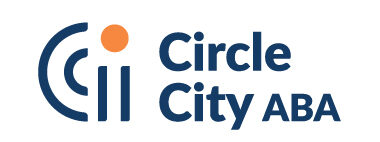Applied behavior analysis, commonly known as ABA therapy, is a type of treatment used to help individuals with autism and other developmental disabilities. An important part of the process is assessing the skills of the individual in order to determine where they need help or additional support. If you are considering ABA therapy for your child or a loved one, read on to discover what you need to know about autism skills assessments.
Why Autism Skills Assessments Are Important
Skills assessments provide an accurate baseline of where an individual is and allow a professional to identify areas needing improvement. This information helps inform and shape the goals of the therapy, so it’s important to have an accurate assessment in place. In addition, regular reassessment can be helpful in gauging progress made throughout the course of treatment.
Types of Assessments Used in ABA Therapy
The types of assessments used will depend on the individual’s age and needs, but they all will help support the diagnosis of autism or developmental disabilities. Some common tools used for assessment include questionnaires, interviews, and direct observation. Standardized tests, such as the following, are also used as assessments:
- Vineland Adaptive Behavior Scales (VABS) – This test specifically focuses on measuring the level of skills a subject has, such as for communication, motor skills, socialization, and more. This will help gain insight into where the individual needs support.
- Functional Behavior Assessments (FBAs) – This assessment helps gain information on specific behaviors, why they occur, and whether they’re academic, social, or emotional. By understanding these types of behaviors, different strategies can be put into place to support better behavior.
These assessments identify behaviors that interfere with learning or functioning in everyday life, making them essential tools for ABA therapy.
The Assessment Process
There are a few steps that are involved when participating in an autism skills assessment:
-
- The first step is typically an interview with parents or caregivers who can provide valuable insight into their loved one’s behavior and abilities. Usually, parents or caregivers are also required to provide medical and developmental history. This will help those who are conducting the assessment to better understand the individual’s background.
- The assessment will then be administered to your child or loved one. This can include via interviews, direct observation, and more.
- Following this initial assessment by a professional, tests may then be administered depending on what is appropriate for the individual’s age and needs.
It’s important that parents remain involved throughout this entire process so they understand their role in helping their loved ones reach their goals.
FAQs About Autism Skills Assessments
We understand that with autism skills assessments, parents and guardians will have a variety of questions, so here are some frequently asked questions and answers.
Who conducts autism skills assessments?
Autism skills assessments are usually conducted by clinical psychologists, developmental pediatricians, speech-language pathologists, or occupational therapists. These professionals are specifically trained in diagnosing and evaluating individuals with autism or developmental disabilities.
Why are skills assessments important in ABA therapy?
Skills assessments offer support in various ways, providing:
-
-
- A baseline of an individual’s abilities
- Areas where someone needs improvement
- Individualized treatment planning
- Personalized intervention strategies
- Progress monitoring
-
Overall, skills assessments are crucial because they provide evidence-based data that is used to create a personalized treatment plan for ABA therapy. With skills assessment results, BCBAs have a better understanding of what someone needs to succeed during therapy.
How can parents be involved in the assessment process?
Parents can stay involved by providing valuable insights during interviews. This can include information about their child’s strengths, challenges, and needs. It’s important for parents to closely support their child’s goals and collaborate with professionals throughout the entire therapy process.
About Circle City ABA
Circle City ABA passionately nurtures progress through play with ABA therapy. We develop programs and services specifically designed for each child. Our child-centered, compassionate approach to therapy brings family goals and clinical best practices together to help kids learn and grow. We’ll work together to define success and help your child achieve it. Contact our admissions team for more information on our services and how we can support you and your child.
What’s the Next Step?
Skills assessments are an essential component of ABA therapy because they provide vital information about an individual’s current level of functioning, which informs goal setting for successful outcomes. Parents should stay involved throughout the entire process so they understand how they can best support their loved ones through ABA therapy treatments.
With proper assessments in place, individuals can get the help they need from skilled professionals who are dedicated to helping them reach their potential! For more information about Circle City ABA and to inquire about starting ABA therapy services, fill out the form on our contact page, call one of our locations, or use the chat app at the bottom right of our website.



